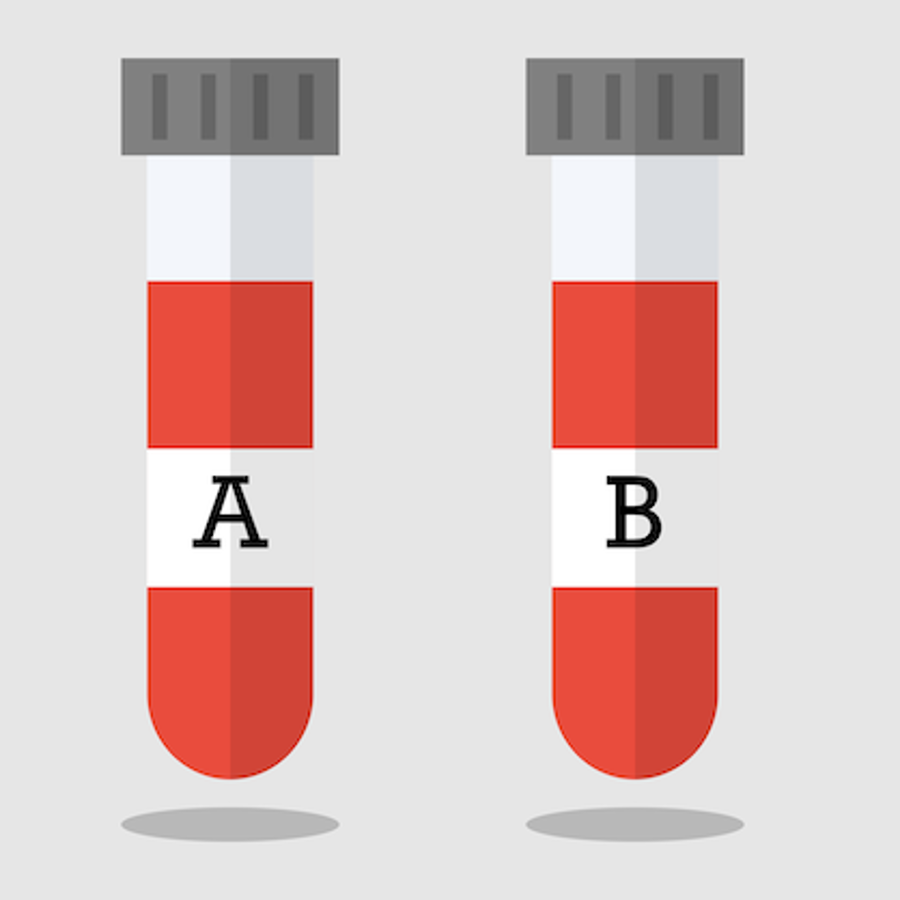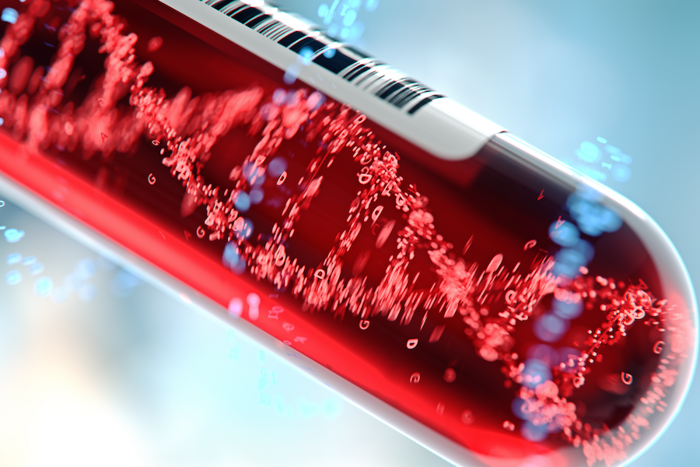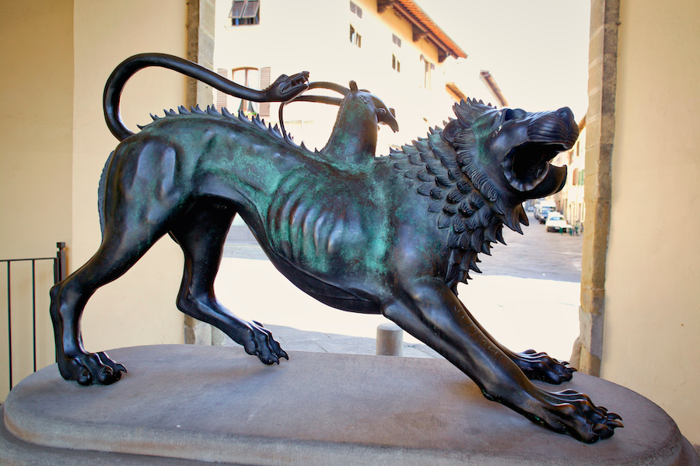
How can B+ blood type parents produce an A+ child?
May 2, 2023

- Related Topics:
- Blood type,
- ABO blood type,
- Rare events,
- Chimera
A curious woman from British Columbia asks:
"My parents are both B+. My twin brother is B+ but I am A+. How is this possible?"
Great question! It’s extremely rare for two Type B parents to have a Type A child. (Or for two Type A parents to have a Type B child.) Not impossible, but very unlikely.
The potential explanations for how this happened include simple human error in the blood type test, misattributed parentage, and a very rare genetic phenomenon known as chimerism.
Read on to find out more about all these possibilities!
A crash course in blood type inheritance
Blood type is typically classified by two different systems. In the first, people can be A, B, AB, or O, while in the second, they can be Rh + or -.
Both blood type systems follow predictable inheritance patterns. In both cases, when given the blood types of two parents, we can figure out all possible options for a child’s blood type. Here’s what that looks like:
|
Parent 1 |
Parent 2 |
Child’s possible |
|
A |
A |
A, O |
|
A |
B |
A, B, AB, O |
|
A |
AB |
A, B, AB |
|
A |
O |
A, O |
|
B |
B |
B, O |
|
B |
O |
B, O |
|
B |
AB |
A, B, AB |
|
AB |
AB |
A, B, AB |
|
AB |
O |
A, B |
|
O |
O |
O |
|
Parent 1 |
Parent 2 |
Child’s possible |
|
+ |
+ |
+ or - |
|
+ |
- |
+ or - |
|
- |
- |
- |
Since the two parts are inherited independently, a full prediction requires combining both classifications together.
Therefore, if both parents are B+, the possible outcomes for their offspring should be B+, B-, O+, or O-. Your brother therefore fits perfectly, but your blood type of A+ would break the conventional rules. So how could something like this happen?
Genetic exceptions to these rules do exist, but they are extremely rare. Before I explain those, I’ll go over a few other scenarios you may want to consider.
Some non-genetic explanations
1. There was a mistake in reporting someone’s blood type
Before jumping to any other conclusions, it’s always a good idea to recheck the blood types. Perhaps the lab made a mistake when determining the blood type for you or either of your parents. Or maybe someone in the family just misremembered their blood type. If your family hasn’t already, I would recommend for everyone to get tested again and verify the results are as you expect.
2. Parentage is different than expected
Typically, an A blood type would only be possible if at least one parent was either A or AB. An ancestry or paternity/maternity test could be used to confirm parentage and eliminate this scenario as a possible explanation.
With that out of the way, we can get to the fun stuff.

Well, it could be fancy genetics after all...
If you’ve ruled out the other possibilities, it may be time to consider some of the genetic exceptions to the blood type inheritance rules. While there are a few ways to get unexpected results, the only one that could explain your situation is called chimerism.
Named after a Greek mythological creature with a lion’s head, goat’s body, and dragon’s tail, chimerism refers to a person carrying two sets of DNA from two different individuals. It can arise through artificial processes later in life or natural processes while a baby is developing.
One potential cause of chimerism is through a bone marrow transplant. This process involves replacing all the blood-producing cells with ones from the donor. One side effect of the transplant is that blood type would change to resemble that of the donor. However, the DNA in any reproductive organs will be unchanged. So a potential child would inherit DNA for the original blood type, and not the one obtained through transplant. If either of your parents have undergone this kind of procedure, you may have an answer.
Other people are born as natural chimeras, which can occur during an early pregnancy of twins. The two embryos may exchange blood cells, or they may even be absorbed into one another to result in a single baby. In either case, the resulting offspring will contain two different sets of DNA. If one of your parents developed in this manner, they could show one blood type but pass a completely different one to a child.

It’s worth noting again, though, that chimerism is uncommon — only around 100 examples have ever been documented in the medical literature. In addition, not all forms of chimerism will lead to offspring exhibiting a different blood type. For these reasons, I wouldn’t count on chimerism as an explanation.
With that said, some confidence exists that the frequency of chimeras has been vastly underreported — after all, most people would never feel the need to get tested! Also, you’re a fraternal twin, which tends to run in families. As natural chimeras form from twins, it’s slightly more likely than average that one of your parents developed this way. So I wouldn’t rule it out, but like I said, it’s still quite unlikely.
The final conclusion
Ultimately, there are a variety of possible scenarios. I would encourage you to explore the non-genetic and genetic explanations I’ve provided here, in that order. Hopefully they can provide you with some clarity!

Author: Aman Patel
When this article was published in 2023, Aman was a PhD candidate in the Department of Computer Science, developing Artificial Intelligence approaches to study evolution and gene regulation as part of Anshul Kundaje’s laboratory. He wrote this answer while participating in the Stanford at the Tech program.
 Skip Navigation
Skip Navigation
